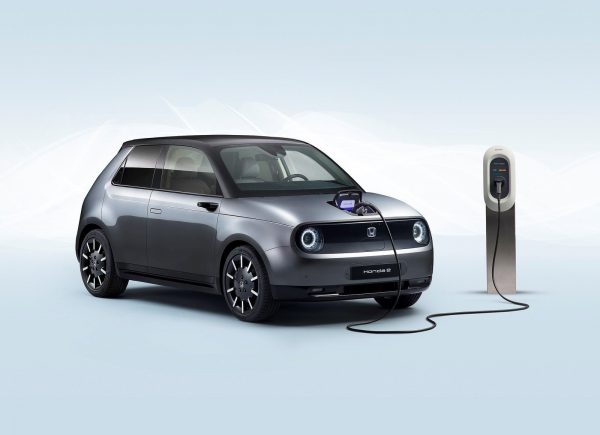The automotive industry is currently in a period of huge uncertainty, and so most medium sized manufacturers are looking to form alliances to benefit from economies of scale and shared research & development costs. Recently the Ford and Volkswagen loose product alliance was formed to help transfer some autonomous technology and to share pick-up truck development costs between those two manufacturers.

Today, we’re hearing that another similar alliance may be forming between Honda and General Motors in North America. The two companies are actually already working together on sharing an Electric Vehicle platform and have been working together for 20 odd years on other projects, so this news isn’t completely surprising. The two signed a non-binding MoU confirming the loose alliance would be tightened slightly.

The alliance between the two companies will see the two manufacturers begin to share vehicle platforms across multiple segments, with co-development plans to begin immediately and engineering work expected to kick off early next year. They will also work together to reduce costs associated with purchasing, and connected services.

It’s not likely the next generation of Honda products are going to be rebadged GM vehicles, more like both companies will have shared chassis, engine, and electrification architectures on their next generation of cars. Design work and model-specific engineering will most likely still be done separately by both companies.

Again, it’s worth noting that this alliance is mainly to benefit these companies in North America. Let’s stay tuned for further developments.

Press Release
General Motors and Honda today announced they have signed a non-binding memorandum of understanding following extensive preliminary discussions toward establishing a North American automotive alliance. The scope of the proposed alliance includes a range of vehicles to be sold under each company’s distinct brands, as well as cooperation in purchasing, research and development, and connected services.
Under the proposed alliance, Honda and GM would collaborate on a variety of segments in North America, intending to share common vehicle platforms, including both electrified and internal combustion propulsion systems that align with the vehicle platforms. Co-development planning discussions will begin immediately, with engineering work beginning in early 2021.
The announcement builds on the agreement signed between the companies in April to jointly develop two all-new electric vehicles for Honda based on GM’s highly flexible global EV platform powered by Ultium batteries. The GM-Honda relationship, which began more than two decades ago, includes recent collaboration between the companies on fuel cells, batteries and the Cruise Origin shared autonomous vehicle.
Alliance to drive scale and improve performance through platform sharing
An alliance in North America between Honda and GM would leverage the best technologies and generate substantial cost efficiencies from shared vehicle platforms and propulsion systems, joint purchasing, potential manufacturing efficiencies and other collaboration efforts. This would enable both GM and Honda to make greater investments in advanced and next-generation technologies.
GM and Honda also plan to share R&D and engineering costs for select future co-developed vehicle and propulsion platforms. This would create substantial efficiencies and free-up capital, enabling both companies to meet the increasing requirements to invest in various future mobility trends and additional growth opportunities for each company’s distinct brands.
Collaboration in purchasing to drive scale and efficiency
Honda and GM plan to collaborate in joint purchasing activities to create further cost efficiencies by leveraging both company’s respective scale, insight and best practices. Purchasing collaboration would be focused on joint sourcing of materials, logistics and localization strategies.
R&D and connected services cooperation to exceed consumer expectations
Introducing advanced technology is imperative, given shifting consumer and regulatory requirements. To address this challenge efficiently, the alliance would explore combining the R&D efforts between the two companies related to advanced technology areas, including electrical architecture, advanced driver assist systems, infotainment, connectivity and vehicle-to-everything communication.
In April, the companies announced that Honda will incorporate GM’s OnStar safety, security and connected services into the two all-new electric vehicles for Honda based on GM’s global EV platform, seamlessly integrating them with HondaLink. Based on that collaboration, GM and Honda will explore further co-development opportunities for future connected services, including GM’s OnStar and infotainment.
All facets of the alliance will be governed by a joint committee, comprised of senior executives from both companies.
General Motors (NYSE:GM) is a global company committed to delivering safer, better and more sustainable ways for people to get around. General Motors, its subsidiaries and its joint venture entities sell vehicles under the Chevrolet, Buick, GMC, Cadillac, Holden, Baojun and Wuling brands. More information on the company and its subsidiaries, including OnStar, a global leader in vehicle safety and security services, can be found at http://www.gm.com.
Honda Motor Co. (NYSE: HMC), Honda designs, manufactures and markets automobiles, motorcycles, power products and aviation products worldwide. A global leader in powertrain and electromotive technologies, Honda produces nearly 28 million engines annually for its three product lines. Honda and its partners build products in more than 60 manufacturing plants in 27 countries, employing more than 208,000 associates globally.